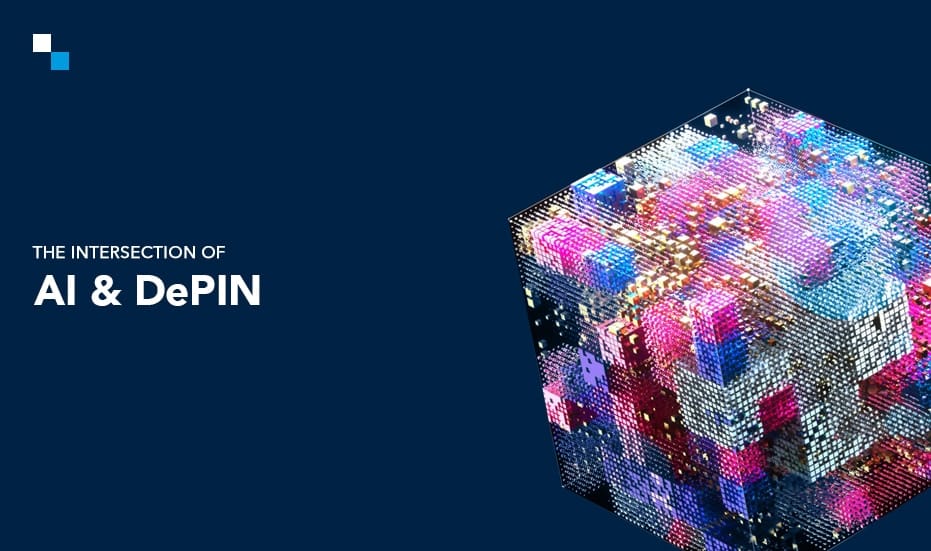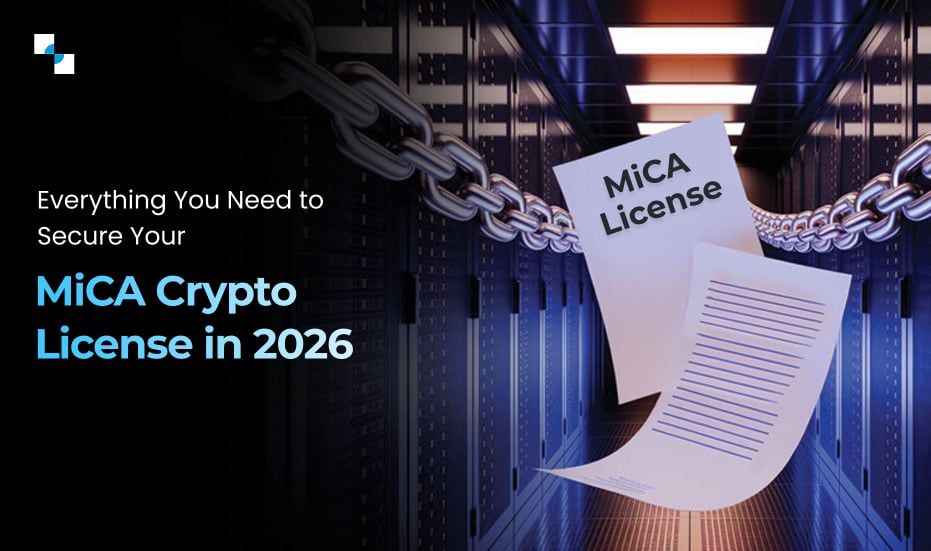The DePIN-AI intersection is leading a new wave of innovation in industries relying on distributed infrastructure. DePIN(Decentralized Physical Infrastructure Networks) refers to decentralized networks of physical infrastructure that operate independently of centralized control.
Unlike traditional systems, where a single entity governs the infrastructure, DePIN leverages decentralized technologies such as blockchain to distribute ownership and control across a network of participants. However, decentralization alone cannot fully unlock the potential of DePIN Solutions.
This is where DePIN AI solutions come into play. By integrating AI into DePIN systems, businesses can harness unprecedented levels of efficiency, scalability, and intelligence. This blog explores how AI is transforming DePIN AI ecosystems and emerging DePIN AI trends in the market.
How AI is Accelarating DePIN Adoption?
Here are the primary areas where DePIN AI solutions are driving innovation in decentralized infrastructure:
Predictive Maintenance
One of the most significant challenges in managing physical infrastructure is ensuring that assets remain operational and efficient over time. In decentralized systems, this challenge is exacerbated by the lack of centralized oversight. AI for DePIN Solutions can mitigate this issue through predictive maintenance.
By analyzing data from IoT sensors and other sources, AI algorithms can predict when equipment or infrastructure components are likely to fail. This enables businesses to perform maintenance proactively, reduce downtime, and minimize costly repairs.
Optimizing Resource Allocation
Resource allocation in decentralized infrastructure is a complex task that requires real-time decision-making. AI’s ability to optimize resource distribution ensures that DePIN solutions operate efficiently under fluctuating conditions.
In decentralized energy networks, for instance, AI DePIN Solutions can manage energy distribution by balancing supply and demand in real-time. By analyzing historical energy consumption patterns and weather data, AI can optimize the allocation of energy from renewable sources like solar and wind, reduce waste, and ensure a stable energy supply.
Security and Risk Mitigation
Security is a critical concern in decentralized infrastructure networks where the lack of central control can make systems vulnerable to cyberattacks and operational disruptions. AI enhances the security of DePIN solutions by detecting and mitigating threats in real-time.
AI-driven security systems can continuously monitor decentralized networks for anomalies, such as unauthorized access or suspicious activity. By using machine learning algorithms, AI can detect patterns that indicate potential security breaches and respond to them before they cause significant damage.
Automation and Scalability
As decentralized networks expand, the need for automation becomes critical. AI’s ability to automate routine tasks, such as data processing, monitoring, and decision-making, ensures that DePIN projects remain scalable.
In decentralized transportation networks, AI-powered autonomous vehicles and drones can streamline delivery operations, reduce the need for human intervention, and improve efficiency. Similarly, AI-driven automation in decentralized energy grids can automatically balance energy loads, prevent blackouts, and ensure that energy is distributed efficiently across the network.
Enhanced Decision-Making
One of the most valuable applications of AI in DePIN is its ability to turn data into actionable insights. Decentralized infrastructure networks generate vast amounts of data from IoT devices, sensors, and user interactions. AI-driven analytics platforms can process this data, identify trends, and provide businesses with the information they need to make informed decisions.
For example, decentralized water management systems rely on a vast network of sensors to monitor water levels, flow rates, and quality. AI can analyze this data to detect anomalies, forecast water demand, and optimize distribution. This not only ensures a reliable water supply but also helps prevent water shortages or overuse in certain areas.

Emerging DePIN AI Trends in the Market
AI-Powered Decentralized Finance
DeFi, a burgeoning sector within the blockchain space, is increasingly incorporating AI to enhance its capabilities. AI can be used to:
- Improve risk assessment: AI algorithms can analyze vast datasets to assess the creditworthiness of borrowers and predict market volatility.
- Optimize portfolio management: AI-powered tools can help investors build diversified portfolios that align with their risk tolerance and return objectives.
- Enhance algorithmic trading: AI can automate trading strategies based on real-time market data and historical trends.
Example: Projects like Synthetix and Aave are exploring the use of AI to improve the efficiency and security of DeFi protocols.
AI-Driven Decentralized Autonomous Organizations
DAOs, decentralized governance structures, are leveraging AI to streamline operations and improve decision-making. AI can:
- Automate tasks: AI can handle routine tasks, freeing up DAO members to focus on strategic decisions.
- Facilitate consensus building: AI algorithms can analyze member preferences and propose solutions that align with the DAO’s goals.
- Enhance transparency: AI can provide real-time data and analytics, increasing transparency and accountability.
Examples: DAOs like Aragon and DAOstack are integrating AI to automate tasks and enhance decision-making processes.
AI for Decentralized Healthcare
The healthcare industry is exploring the potential of AI to revolutionize decentralized healthcare systems. AI can:
- Improve patient outcomes: AI-powered tools can analyze medical records, identify patterns, and predict disease progression.
- Enhance data privacy: Blockchain technology and AI can ensure that patient data is secure and accessible only to authorized parties.
- Reduce healthcare costs: AI can optimize resource allocation and streamline administrative processes, leading to cost savings.
Examples: Projects like MediBloc and Chronicled are using AI to improve healthcare access, data privacy, and patient outcomes.
AI for Decentralized Supply Chains
Decentralized supply chains are benefiting from AI-powered solutions that improve transparency, traceability, and efficiency. AI can:
- Track product provenance: AI can trace products from their origin to the consumer, ensuring authenticity and quality.
- Optimize logistics: AI can optimize transportation routes, inventory management, and warehouse operations.
- Reduce fraud and counterfeiting: AI can detect anomalies in supply chain data and prevent fraudulent activities.
Examples: Provenance and IBM Food Trust are using AI to track the provenance of products and materials, ensuring transparency and sustainability.

Conclusion
By harnessing the combined power of AI and DePIN Solutions, businesses can create intelligent, decentralized infrastructure systems that adapt to changing conditions, optimize resource use, and ensure long-term sustainability. For businesses looking to explore the potential of AI-driven decentralized infrastructure, collaborating with a trusted DePIN development company like Antier can unlock a wealth of opportunities.







